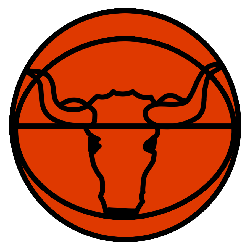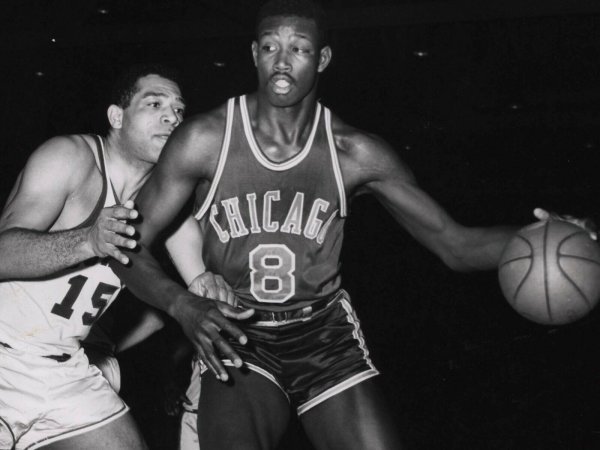
Established
1961
City
Chicago – Baltimore – Washington D.C.
League History
1961 – Present / National Basketball Association
Team History
1997 – Present / Washington Wizards
1974 – 1997 / Washington Bullets
1973 – 1974 / Capital Bullets
1963 – 1973 / Baltimore Bullets
1962 – 1963 / Chicago Zephyrs
1961 – 1962 / Chicago Packers
Nickname
Packers – The Chicago Packers have been among the most successful and recognizable teams in the history of the NBA. As a result, their nickname has become iconic as well. But where did this unique moniker come from?
Chicago Packers Origin
It all began when the team was founded in 1961 by Dick Klein, who named his squad after his hometown of Chicago's beloved Green Bay Packers football team. The idea behind the name was to create an association between two great sports franchises that would help both teams gain recognition and success on a national level.
At first glance, it may seem odd for an NBA franchise to take its name from a professional football club – especially since basketball had only recently started gaining traction! However, Klein saw the potential for growth with such an unconventional move: he wanted fans across America to recognize and identify with the new basketball team just as they were familiar with Green Bay’s winning ways on Sundays during fall season games.
Fortunately for him (and us!), this strategy worked out perfectly - today, we know “the Pack” simply as one of the best-known names in all sports! From Michael Jordan leading them into championships throughout the 90s until now – thanks largely due Dick Klein’s vision back then - it is clear how important having such strong branding can be even decades later!
Championship
NBA Championships 0
1978
Arena
2018 - Present / Capital One Arena
2007 – 2017 / Verizon Center
1997 – 2006 / MCI Center
1994 – 1997 / US Airways Arena
1973 – 1993 / Capital Centre
*Baltimore*
1963 – 1973 / Baltimore Civic Center
*Chicago*
1962 – 1963 / Chicago Coliseum
1961 – 1962 / International Amphitheatre
Owner
2010 – Present / Ted Leonsis
2009 – 2010 / Estate of Abe Pollin and Ted Leonsis
1999 – 2009 / Abe Pollin and Ted Leonsis
1964 – 1999 / Abe Pollin
1961 – 1964 / David Trager
- 1961
- 1961
- 1961
- 1962
- 1962
-
Packers Team Formation
The team’s original nickname was a nod to Chicago’s meatpacking industry; their home arena, the International Amphitheater, was next door to the Union Stock Yards. However, it was extremely unpopular since it was the same nickname used by the NFL’s Green Bay Packers, bitter rivals of the Chicago Bears. -
The Packers play their first regular season game coached by Jim Pollard
In October 1961: The Packers play their first regular season game, losing to the New York Knicks 120–116 at Madison Square Garden. The Packers are coached by Jim Pollard and led by rookie forward Walt Bellamy, who averages 31.6 points and 19 rebounds per game in his first season. -
Packers play their home games at the International Amphitheatre
In November 1961: The Packers win their first game, defeating the Cincinnati Royals 108–104 at home. The Packers play their home games at the International Amphitheatre. -
Walt Bellamy named the NBA Rookie of the Year
In March 1962: The Packers finish their inaugural season with a 18–62 record, ranking last in the Western Division and missing the playoffs. Bellamy is named the NBA Rookie of the Year and makes the All-NBA First Team. He also sets a rookie record with 59 points in a game against the Lakers on March 31. -
Chicago Packers changed their name to the Zephyrs
at the end of 1962, The Chicago Packers changed their name to the Zephyrs after their first season because they wanted a more distinctive name that was not associated with the NFL’s Green Bay Packers. The name Zephyrs was chosen after a fan contest and referred to a passenger train that ran between Chicago and Denver. The team also changed ...
To qualify as the greatest player for this team, the player must have played one season for this team. If not, we will remove the player.
* verifies that player has played for this team as an added player by a fan.
Chicago Packers History
The Chicago Packers history marks the beginning of Chicago’s first NBA franchise. Founded in 1961 as part of the league’s expansion, the team brought professional basketball back to the city after a long absence. The franchise played its home games at the International Amphitheater. In 1962, it became the Chicago Zephyrs, keeping the same roster while trying to build local support.
Although the Chicago Packers NBA team had promising talent, it struggled to compete during its debut season. Star center Walt Bellamy, who averaged over 30 points and 19 rebounds per game as a rookie, was the bright spot and later became a Hall of Famer. After just one year, the franchise relocated to Baltimore in 1963, becoming the Baltimore Bullets, which would eventually evolve into the Washington Wizards.
Packers Achievements
The Chicago Packers history is important because it set the stage for future professional basketball in the city. While the team did not achieve playoff success or win championships during its brief stay, it produced standout players like Bellamy and contributed to the league’s rapid growth during the 1960s. This foundation helped shape later franchises in Chicago.
Even though the original Chicago Packers NBA team no longer exists, its legacy lives on. The franchise became the Baltimore Bullets, then the Capital Bullets, and later the Washington Bullets before adopting the Washington Wizards name in 1997. This journey from Chicago to Washington, along with the contributions of players like Bellamy, remains an essential chapter of NBA history and of the Chicago Packers history in particular.
Sports Fan Products
Auto Amazon Links: No products found.
Retired Number
10 / Earl “The Pearl” Monroe
11 / Elvin Hayes
25 / Gus Johnson
41 / Wes Unseld
45 / Phil Chenier
*Blue is this team’s history









